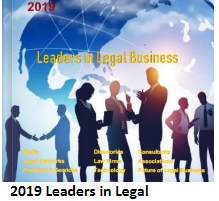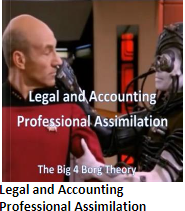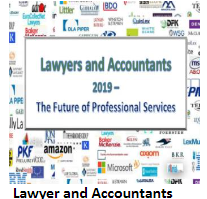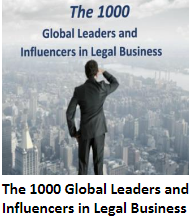Silvia Coulter Prrincipal Consultant, LawVisionGroup
Silvia Coulter is a Co-founding Principal of LawVision. Silvia is widely regarded as one of the legal industry’s most experienced sales, key client planning, and leadership experts. Her experience includes working as a former strategic account executive and sales leader at a Fortune 50 company, a chief marketing and business development officer at two global law firms, and consultant and facilitator to firms across the globe.
Law firm leaders rely on Silvia’s experience and assistance with leadership development, culture assessments and business development strategy. In 2010 she was given the highest recognition in the industry among her peer group and was inducted into the Legal Marketing Hall of Fame. She is a co-founder of the Legal Sales and Service Organization (LSSO) and a Past Elected President of the Legal Marketing Association and a Fellow of the College of Law Practice Management. She is a frequent speaker and facilitator at law firm retreats and legal industry meetings.
__________________________________________________
These individuals include professionals with strong backgrounds in finance, sales (including strategic account management), and HR (including talent acquisition, talent management, and leadership development). While we focus on sales in this section, without the “products” to sell — the legal professionals and their work, or the financial expertise to direct the firm into profitable practices (regardless of who gets bruised in the process) — the sales experts, and thus the firm, will not be as successful as they possibly can be. It’s time to really respect these individuals who historically have been referred to as “non-lawyers” and include them in the decision-making about the strategic direction of the firm. Now onto purely sales.
One operational area of today’s firms is the sales and marketing group that focuses on marketing, business development, and sales.
To clarify the difference between sales, business development, and marketing, here are some definitions. The term sales describes the process of pursuing a specific revenue opportunity. It is the face-to-face, relationship-building activity that will help build new business from existing clients and new clients, or direct contact with the end buyer(s). Direct selling in the legal industry has become competitive and strategic.
Business development is a “softer” side of sales and generally includes those activities that support sales efforts, such as RFP writing and responses; proposal writing; client relationship management support tools (databases that keep track of contacts); and internal support of the lawyers’ sales efforts and needs, including BD coaching and training. In short, business development is closer to marketing than it is to sales on the spectrum. The terms are used interchangeably by some professionals to avoid the negative connotation they perceive the word “sales” may have. Business development managers support lawyers who are often in direct contact with the end user of the legal services.
Marketing is often described as brand-building efforts like article writing; speaking; attending conferences; or running firm seminars, public relations/marketing communications, website management, and other related activities that help raise visibility in the marketplace or support efforts to do so. Marketing research is another important area. Conducting research to help identify potential opportunities is a wise investment before spending unnecessary dollars in branding a firm. Marketing activities are those that support business development and sales efforts.
We sometimes describe sales as “one to one” and marketing as “one to many.” These three terms — sales, marketing, and business development — are used interchangeably, often because there is confusion among legal professionals about the various activities, and also because the word “sales” can be seen as a very negative word among lawyers. The fact of the matter is, most of law firms’ clients have sales teams, and all firms have one or more rainmakers. These people help to drive revenue and to bring new business to their firms. They perform in the same manner as salespeople in the business world.
An example of how these activities all connect is as follows. A lawyer writing an article or giving a speech (marketing activities) may continue to leverage the article or the presentation in a number of ways that expand their marketing use, including linking the article or presentation to the firm’s website, adding them to one’s LinkedIn profile, and/or sending them to other lawyers in the firm to share with their clients and contacts. An article may be used to generate interest in one’s services through a more direct approach — in other words, as a sales tool. Reaching out to a prospective client with information about a current trend, regulatory change, or creative approach to a project is a sales outreach and offers the opportunity to connect directly with an individual to discuss their business goals and, therefore, anticipated legal needs. These marketing activities give lawyers the opportunity to use the time invested in preparing an article or speech (for example) and turning it into a sales opportunity.
To summarize, directly driving revenue is selling, and maintaining and growing relationships (or supporting those who do) is business development. Both are necessary to sustain a firm. Both have value and should be recognized.
For assistance with the next step — turning a contact into a client — more firms are hiring business professionals to help out.
A more recent development in the legal industry is the use of highly skilled sales professionals who are adept at helping others with sales strategy and sales planning. Often call “coaches,” these individuals will assist lawyers to be more effective at building a book of business, developing a strategy to win a specific client engagement, or improving upon their existing business development efforts. Research conducted by Thomson Reuters/West shows that in 2012, about 4 percent of the reporting firms had structurally distinct sales departments from their marketing departments. In 2015, that number jumped to 14 percent of reporting firms. With titles like director of sales, business development officer, and client relationship executive, these individuals are helping lawyers to sharpen their sales skills and therefore their “win” rates to build new business opportunities for their firms.
While controversial for some firms, others — again, some of the Leader firms — are embracing these individuals, and see their expertise and experience as an essential element of their firm’s client retention, client growth, and new business strategy. In some cases, these individuals act as internal sales coaches or partner with outside resources to provide the needed coaching support if demand is high. Emphasis is placed on helping to facilitate the sales process, including where someone may be along the spectrum of the sales process and developing sales forecasts that predict with some accuracy where the business and associated revenue will come from. The sales professionals’ popularity is growing and many of them are partnering with outside sales coaches.
There are many individuals offering up their services as sales coaches. The individuals who have actual sales experience, with a proven track record and a history of working with lawyers in this capacity, will be the most effective at coaching. This is especially true when it comes to helping rainmakers grow their books of business. While many say they are good at coaching, few possess the necessary selling skills and prowess to help the top rainmakers increase their books of business. But of course, those are not the only individuals who coach. Scaling a coaching program to a specific individual’s needs is what a good coach will do best. Just as some of the best athletes in the world have coaches to help them refine their performance, the same is true of lawyers and their coaches.
So, who do these firms hire if they are hiring sales people? Do they have to have a law degree? Do clients actually like being approached by a “non-practicing lawyer?” The answers vary depending on which firm is asked. Generally speaking, the critical skill is sales. One must possess the necessary selling skills to a) be effective at selling legal services and b) to “partner” with highly-skilled lawyers who may already be good at relationship-building.
Some firms believe it is necessary to have a law degree for two reasons: first, to add credibility to the individual in the eyes of the lawyers with whom she/he is working; and second, for their knowledge of the legal services (albeit general knowledge across the spectrum of services). We do not think it is critical to have a law degree in order to be successful at selling legal services. What is important, though, is that the firm is comfortable with this role and the individual, so whatever will work best for the firm is what should guide the decision about who to hire.
Sales, Business Development, and Coaching Resources
Product for tracking progress with sales include client relationship management tools such as SalesForce.com. The user interface has been greatly enhanced by a company from Australia and more information may be found at their website.
InterAction, a relationship management tool sold by LexisNexis, was the frontrunner for quite some time and remains popular particularly with the larger firms. Another popular relationship management/sales tracking tool is ContactEase, which is offered by Cole Valley. Their software has been the favorite of mid-size firms for more than 20 years. Some firms find it helpful to use a simple spreadsheet to track sales performance of individuals, practices, offices, or the firm. These tools, in general, help individual lawyers with their sales efforts by providing a format to keep track of the best revenue-generating pursuits. These tools have largely been adapted from business.
Lawyer coaching resources include LawVision Group, which has four well-established, experienced coaches, all of whom have been inside law firms and in sales.
There are some organizations that also have useful resources and conferences. The Legal Sales and Service Organization was founded to provide resources and a forum for members of law firms who focus on sales. Their annual conference, The RainDance Conference, brings together members in the legal profession whose job it is to oversee the sales and business development efforts at their firms. The Legal Marketing Association also provides tools and resources for sales and marketing members at firms. The association’s focus is broader since it includes in large part sales and public relations and technology, their annual conference combines all the specialties along the spectrum from marketing to sales.
[1] Silvia Coulter is one of the world’s leading law firm sales strategy consultants. Read more about her work and background at www.lawvisiongroup.com/consultants/silvia-l-coulter or contact her in the U.S. at 978-526-8316.
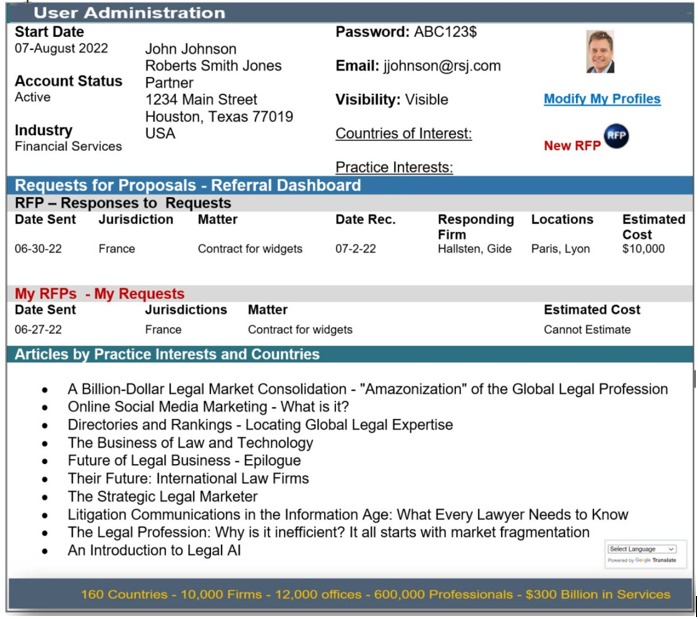



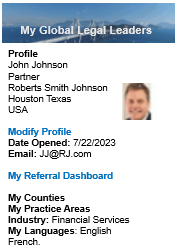
 Software
Software Law
Law Legal
Legal
